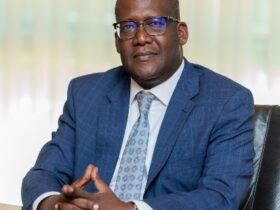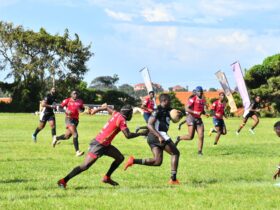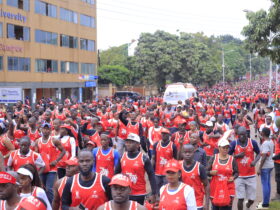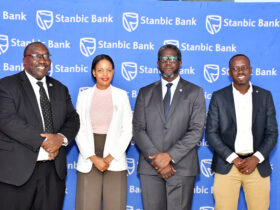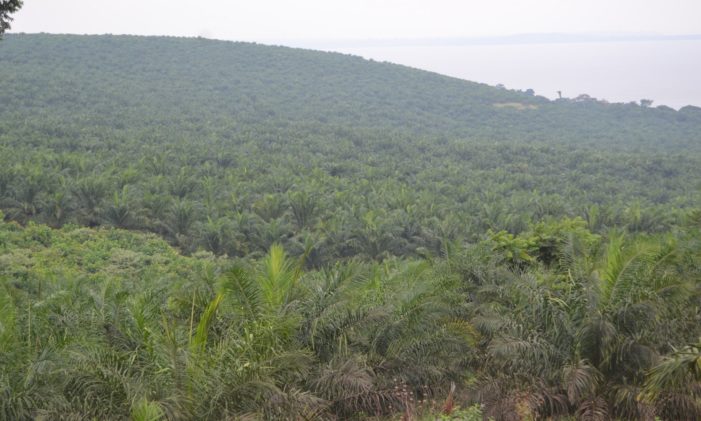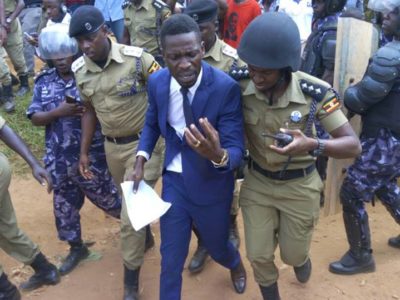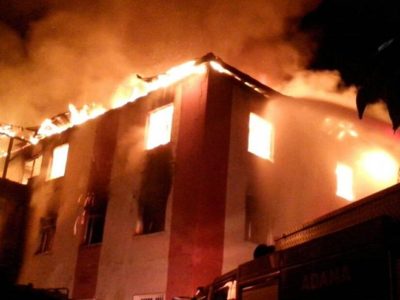A US$ 52 million International Fund for Agricultural Development (IFAD) loan repayable in 2018 to boost vegetable oil development in Uganda has been rocked by a scam run by fraudulent government officials in the island district of Buvuma.
According to information seen by TheUgandan, there is a well coordinated and fraudulent manner by which the Vegetable Oil Development Project Phase II (VODP2) staff led by the Project Manager, Connie Magomu Masaba of the Ministry of Agriculture, Animal Industry and Fisheries, a position she has held for the last ten years. Also involved prominently in the scam are Oil Palm Coordinator at VODP2 Kyofa Kabuye from Nakaseke, Epayi Gerald and Joseph Magira Salongo.
Sources familiar with the situation told TheUgandan that these officials run a cartel of ghost tenants mostly VODP staff and their proxies who benefit from the diverted multibillion compensations carried out under IFAD’s ‘Vegetable Oil Development Project’ which claims to be aimed at “increasing the domestic production of vegetable oil and its byproducts, thus raising rural incomes for smallholder producers and ensuring the supply of affordable vegetable oil products to Ugandan consumers.”
It is understood that VODP II management has been colluding with fake landlords, paid them but later genuine landowners rose up and dragged VODP II to court seeking justice. In one case, a Buvuma landowner ran to authorities in Masaka after over Shs100 million for his land, block 60, plot 2 at Lwolwe, Nairambi sub county was taken over by the government officials after exchanging the money to one of their ghost tenants.
The information acknowledged as genuine by Buvuma Resident District Commissioner Kyeyune Ssentongo who has been monitoring the project and studying of operation of the VODP2 staff and their associates in and outside government; in and outside the district reveal that a great deal of the project has been diverted to greedy and selfish interests.
“This is so worrying to the extent that the people of Buvuma are starting to say that the NRM government is the one making rendering them landless,” RDC Kyeyune told TheUgandan on Wednesday when contacted about the scandal. He added, “The people are threatening not to vote for President Museveni or any NRM candidate come 2021 elections for the matter.”
There are also reports of unfair valuation with VODP and Oil Palm Uganda Limited paying Shs3m per 10 acres which locals say is far below the market price
Billions of shillings borrowed from IFAD have apparently been diverted from the noble cause of compensating tenants. It has been reported how top officials appear to have turned the project into a looting spree and an opportunity to primitively accumulate wealth by cheating genuine tenants of the bibanja in the islands.
Hundreds of tenants have not been compensated despite a February 29, 2016 directive by which Rt. Hon. Ruhakana Rugunda to give a full settlement to all claimants by May 2016.
Efforts to obtain clarification from VODP manager Ms Connie Magoma Masaba were yet to bear fruit as he fell short of responding to our telephone calls.

But according to VODP’s Kyofa Kabuye, the accusations are unfounded thought the project has continued to be dogged by lack of proper land documentation, multiple land ownership and resistance by some landowners.
A spot check by this website showed that the land set aside for growing the palm trees is not marked for easy identification, a scenario that could spark conflict between the government and landowners in future.
TheUgandan also contacted another VODP2 official implicated in the scandal Epayi Gerald by telephone, but he repeatedly refused to comment at that time because he was “on his way into a meeting”. He has since failed to respond to our email requesting his views.
Continuous land grabbing?
Land ownership on Buvuma Island has been a thorny issue ever since the government showed interest in growing palm oil trees in the area.
In June 2012, residents of Buvuma Island led by their district woman MP Nantume Egunyu protested the government’s move to give Bidco land on the island, insisting that residents have to be compensated to allow the project to kick off.
Although nominally independent, Oil Palm Uganda Limited (OPUL) is 90% owned by Bidco Uganda, itself a joint venture between the oil palm giant Wilmar International, Josovina Commodities and Bidco Oil Refineries, a Kenya-based company. Wilmar International holds at least 39% of the shares in OPUL and is providing technical expertise for the project.
Friends of Earth, a UK based organisation that brings together environmentalists, accused the World Bank and the Ugandan government, in a report, of assisting big investors to grab land for commercial farming, causing poverty, environmental degradation and human rights violations. The World Bank has denied these accusations.
The report titled: Land, life and justice: How land grabbing in Uganda is affecting the environment, livelihoods and food sovereignty of communities, claimed the World Bank and the International Fund for Agricultural Development injected a combined $29.9 million in the palm oil growing and processing project, which has threatened the livelihoods of over 20,000 people of Bugala Island on Lake Victoria.

Hectares of land have been razed and burnt down in Buvuma district to pave way for palm oil plantations.
The nearby Bugala Island project sits on 10,000 hectares of land, 6,500 hectares of which is under Oil Palm Uganda Ltd. and 3,500 hectares is for outer grower and small holder farmers.
The project is expected to benefit directly some 3,000 smallholders from oil palm development and 136,000 households will benefit from oilseed development. Other value chain activities will include HIV/AIDS and gender awareness building, and social inclusion focussed on gender and youth.
To date, IFAD has financed 14 projects and programmes in Uganda for a total investment of US$ 295.5 million benefiting 4,281,150 households.


